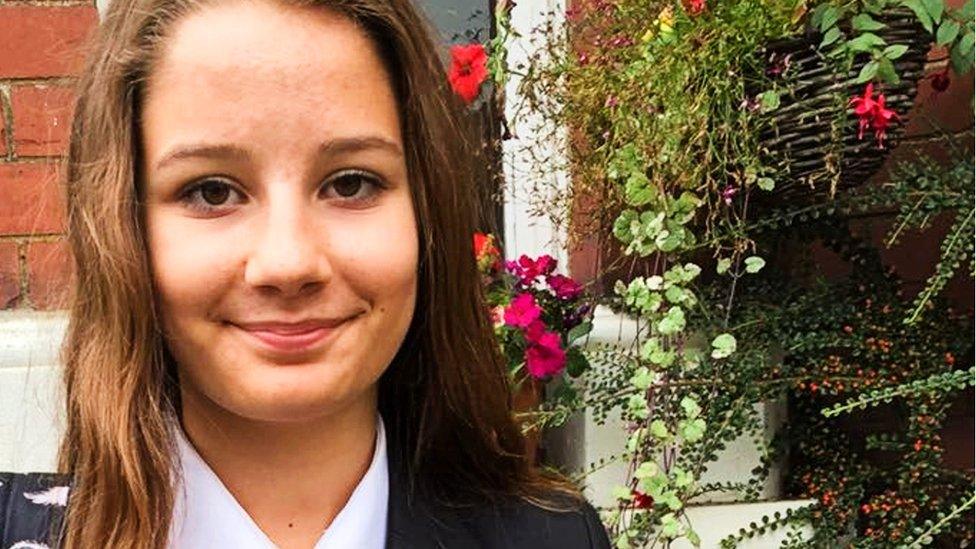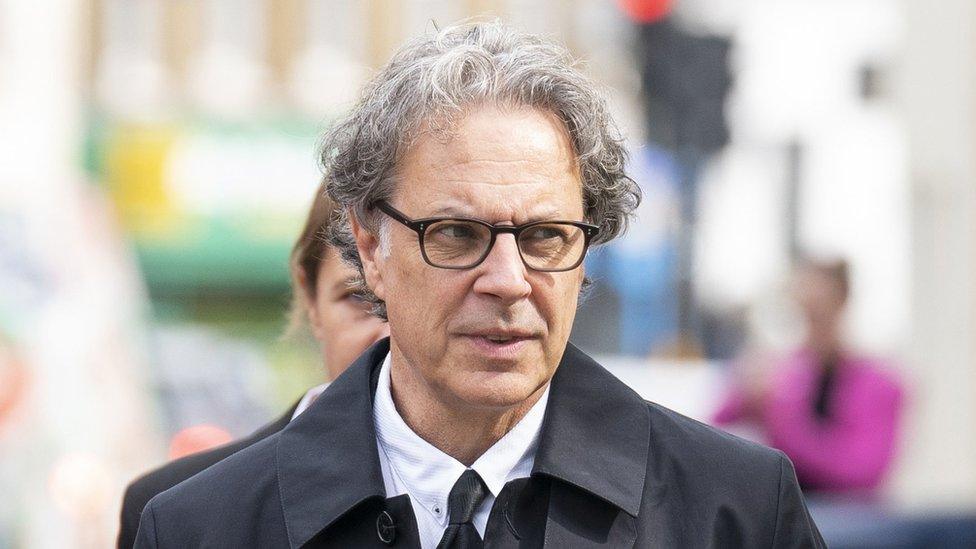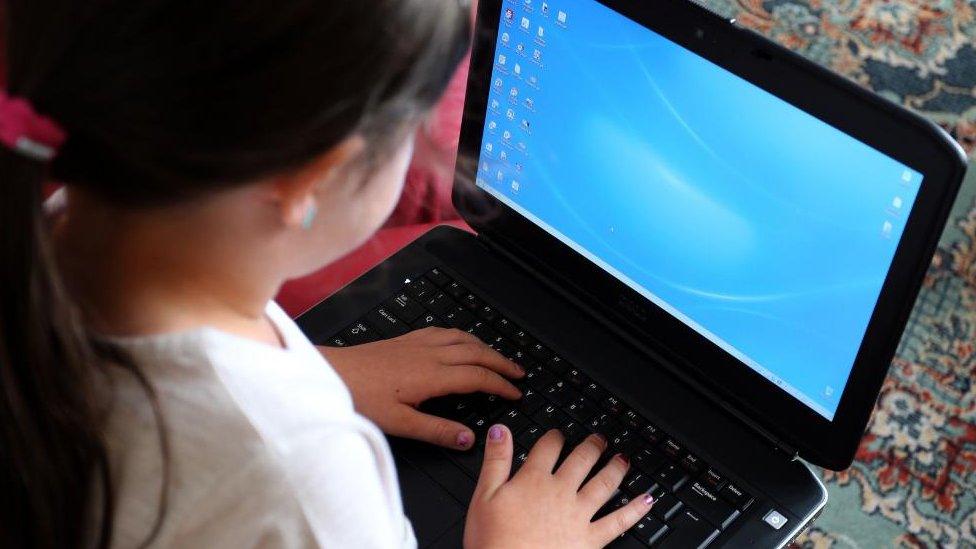Molly Russell: Dad criticises social media firms' responses to coroner
- Published

Molly Russell was aged 14 when she died in 2017
Molly Russell's father has criticised social media companies for their "underwhelming" response to a coroner's call to prevent future deaths.
The 14-year-old, from Harrow, London, took her own life in 2017 after viewing suicide and self-harm content online.
A coroner concluded Molly died while suffering from the "negative effects" of online content.
Ian Russell said the social media firms' responses indicated a "business as usual approach".
Senior coroner Andrew Walker had sent a Prevention of Future Deaths (PFD) report to social media giants Meta, Pinterest, Twitter and Snapchat last year.
Recommendations were issued, including a review of algorithms used by the sites to provide content.
Molly's father Mr Russell said only regulation, as proposed in the Online Safety Bill, would change the attitude of social media giants.
He said: "My reaction is summed up by underwhelming and unsurprising.
"The responses vary but in general they are underwhelming and seem to me to indicate a 'business as usual' approach post-Molly's inquest.
"One perhaps would have hoped that looking at the level of detail that was presented to the coroner… it would have focused minds and compelled tech platforms to react more positively to put safety higher up their agenda.
"But that doesn't seem to be the case - particularly in Meta's case."

If you've been affected by self-harm or emotional distress, help and support is available via the BBC Action Line

Meta, the parent company of Instagram, in their response to the coroner's PFD report said it had introduced a sensitive content control on the platform,"take a break" reminders and a nudge feature for teenagers dwelling on a particular topic.
Pinterest also responded, saying it would develop tools to limit the distribution of sad or depressive content to teens, and expand its self-harm policy to remove references to self-harm or suicide in artwork or memes.
Snap Inc, which runs Snapchat, said it was introducing new resources to help people manage their mental health.
Molly, from Harrow in north-west London, ended her life in November 2017 after viewing suicide and self-harm content on sites such as Instagram and Pinterest, prompting her family to campaign for better internet safety.
Mr Russell has repeated calls for criminal liability for senior bosses at social media platforms.

Ian Russell has campaigned for a safer online world for children since his daughter's death
Prime Minister Rishi Sunak faces as a rebellion from Conservative MPs over the Online Safety Bill.
Around 50 rebels, including ex-Home Secretary Priti Patel and former party leader Sir Iain Duncan Smith, are pushing for social media bosses to be made criminally liable if they do not block minors from seeing damaging content online.
The new internet safety law will require tech companies to remove illegal material from their platforms, with a particular emphasis on protecting children from seeing harmful content.


Related topics
- Published13 January 2023

- Published29 November 2022

- Published14 October 2022
